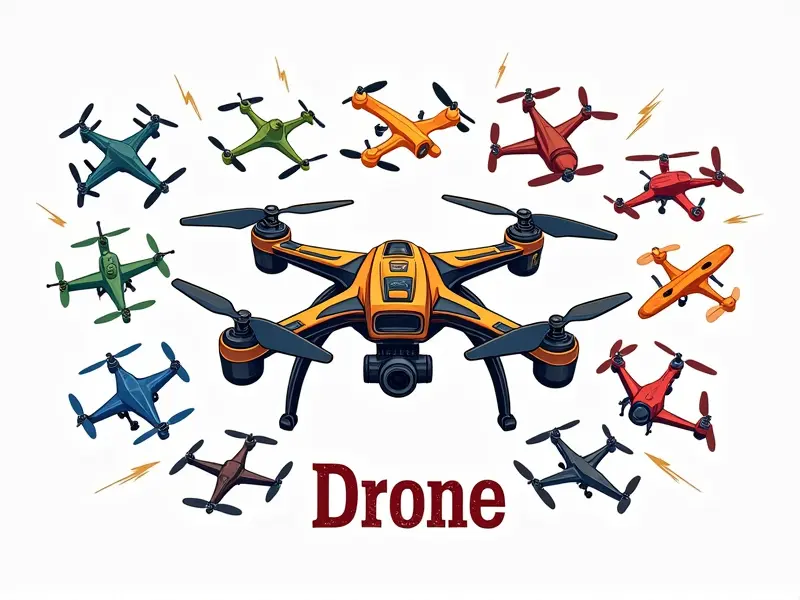What's an ESC on a drone?

Understanding Drone ESCs: A Beginner's Guide
Welcome to the world of drone technology! One crucial component that often goes unnoticed but plays a pivotal role in the performance and reliability of your drone is the Electronic Speed Controller (ESC). This guide will help you understand what an ESC is, why it’s essential for your quadcopter, how to maximize its performance, common issues, and more.
Understanding Drone ESCs: A Beginner's Guide
An Electronic Speed Controller (ESC) is a critical component in any drone or RC aircraft. It controls the speed of electric motors by varying the voltage supplied to them. In essence, it acts as the brain that manages how fast your drone’s propellers spin.
Why ESC is Crucial for Your Quadcopter
The ESC is crucial because it directly affects the stability and performance of your quadcopter. It ensures smooth motor control, allowing you to adjust flight speed accurately and efficiently. Without a properly functioning ESC, your drone would be difficult to maneuver and could suffer from erratic behavior.
Maximizing Performance with the Right Drone ESC
To get the most out of your quadcopter, selecting the right ESC is essential. Consider factors such as motor type, battery capacity, and desired performance level when choosing an ESC. A high-quality ESC will provide better throttle response, smoother flight dynamics, and increased reliability.
Factors to Consider When Choosing an ESC
- Motor Type: Brushless motors require brushless ESCs for optimal performance.
- Battery Capacity: Ensure the ESC can handle the current draw of your battery pack.
- Performance Level: Choose an ESC that matches your desired flight characteristics (e.g., high-speed racing or stable aerial photography).
The Role of ESC in RC Aircraft
In RC aircraft, the ESC serves as a bridge between the battery and the motor. It converts electrical signals from the receiver into power for the motors, controlling their speed based on input from the transmitter. This allows pilots to control throttle, pitch, roll, and yaw with precision.
How ESC Works in FPV Racing Drones
In First-Person View (FPV) racing drones, ESCs play a vital role due to the high speeds involved. These ESCs are designed for rapid response times and can handle extreme current demands. They enable pilots to make quick adjustments during races, ensuring competitive performance.
Key Features of FPV Racing ESCs
- Built-in BEC: Battery Eliminator Circuit (BEC) powers the receiver and servos without a separate battery.
- D-shot Capability: Allows for higher data rates, improving signal quality and response time.
ESC Basics: A Must-Know for Drone Enthusiasts
Understanding basic ESC functions is crucial for any drone enthusiast. Key aspects include:
- BEC (Battery Eliminator Circuit): Powers the receiver and servos.
- D-shot: Provides faster data transmission between transmitter and receiver.
- Current Rating: Indicates how much current the ESC can handle.
Choosing the Right ESC for Your Drone
Selecting an appropriate ESC involves considering several factors:
- Motor Specifications: Ensure compatibility with your motor's requirements.
- Battery Capacity: Match the ESC’s current rating to your battery capacity.
- Purpose of Use: Choose an ESC tailored for racing, photography, or general flying.
Maximizing Flight Performance with Proper ESC Setup
A well-configured ESC setup can significantly enhance flight performance. This includes:
- Tuning Parameters: Adjust settings like voltage cut-off and throttle curve for optimal control.
- BEC Settings: Configure BEC output to match your receiver's power requirements.
Common Issues with Drone ESC Systems
Problems such as overheating, noise, or erratic behavior can arise from improper setup or component incompatibility. Address these issues by:
- Checking Connections: Ensure all connections are secure and free of corrosion.
- Maintaining Cool Temperatures: Use heat sinks or cooling fans to prevent overheating.
The Role of ESC in RC Aircraft
In addition to drones, ESCs play a critical role in other types of RC aircraft. Whether it’s planes, helicopters, or multirotors, the ESC ensures smooth and responsive control over motor speed and direction.
ESC Explained for Quadcopter Enthusiasts
For quadcopter enthusiasts, understanding how ESCs work is essential to achieving optimal flight performance. By selecting the right ESC and configuring it properly, you can enhance stability, responsiveness, and overall flying experience.
Conclusion
In conclusion, an Electronic Speed Controller (ESC) is a vital component in any drone or RC aircraft system. Understanding its role, choosing the right model for your specific needs, and setting it up correctly are key to achieving top-notch performance. By following this guide, you'll be well-equipped to make informed decisions about ESCs and enjoy smoother, more reliable flights.

